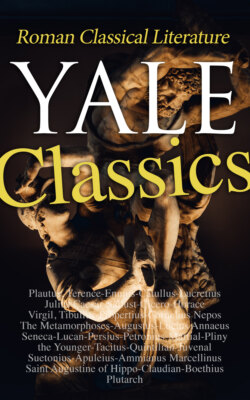Читать книгу Yale Classics - Roman Classical Literature - Луций Анней Сенека - Страница 204
На сайте Литреса книга снята с продажи.
26
ОглавлениеTo counteract this, Pompey fitted out large merchant ships, which he found in the harbor of Brundusium: on them he erected turrets three stories high, and, having furnished them with several engines and all sorts of weapons, drove them among Caesar's works, to break through the floats and interrupt the works; thus there happened skirmishes every day at a distance with slings, arrows, and other weapons. Caesar conducted matters as if he thought that the hopes of peace were not yet to be given up. And though he was very much surprised that Magius, whom he had sent to Pompey with a message, was not sent back to him; and though his attempting a reconciliation often retarded the vigorous prosecution of his plans, yet he thought that he ought by all means to persevere in the same line of conduct. He therefore sent Caninius Rebilus to have an interview with Scribonius Libo, his intimate friend and relation. He charges him to exhort Libo to effect a peace, but, above all things, requires that he should be admitted to an interview with Pompey. He declared that he had great hopes, if that were allowed him, that the consequence would be that both parties would lay down their arms on equal terms; that a great share of the glory and reputation of that event would redound to Libo, if, through his advice and agency, hostilities should be ended. Libo, having parted from the conference with Caninius, went to Pompey, and, shortly after, returns with answer that, as the consuls were absent, no treaty of composition could be engaged in without them. Caesar therefore thought it time at length to give over the attempt which he had often made in vain, and act with energy in the war.
